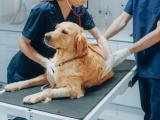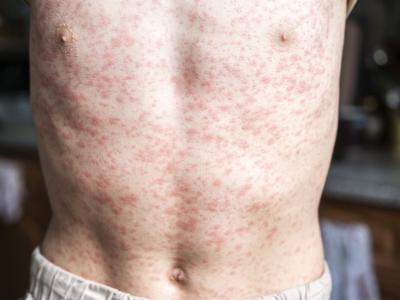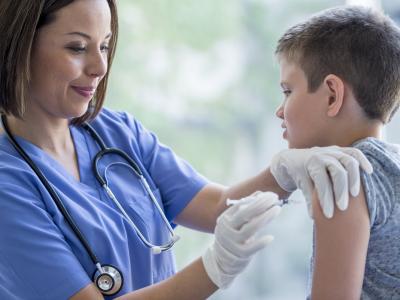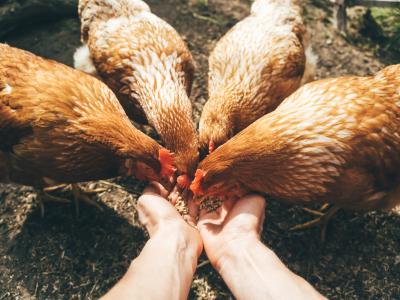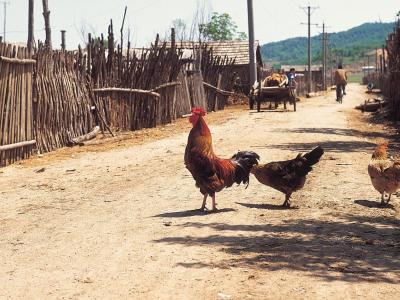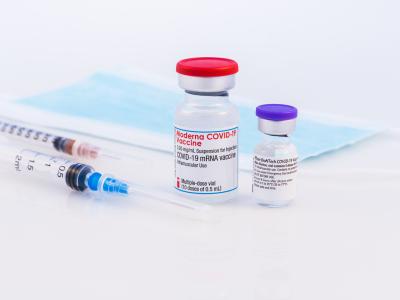Nov 3, 2008 (CIDRAP News) – Bioniche Life Sciences, based in Belleville, Ont., announced recently that it received full approval from the Canadian Food Inspection Agency (CFIA) to market the world's first vaccine to reduce Escherichia coli O157:H7 shedding by cattle, a measure that could decrease contamination in meat and produce.
Brett Finlay, a microbiologist at the University of British Columbia whose research led to development of the vaccine, said in an Oct 27 Bioniche press release, "If we block the colonization of cows by O157, we basically decrease the number that humans are exposed to, and thus, dropping disease levels in humans."
The company said the vaccine could also be used in livestock at petting zoos and agricultural expositions to reduce bacterial transmission to humans.
Bioniche is also positioning itself to market the vaccine to cattle producers in the United States, according to a previous report. In February, the US Department of Agriculture (USDA) notified the company that the latest data on the vaccine met its "expectation of efficacy" standard, which allowed the company to pursue a conditional US license.
E coli O157:H7 doesn't sicken cattle but is potentially fatal to humans. It produces a toxin that causes diarrhea, often bloody, but usually no fever. Though most patients with E coli O157:H7 infections recover in 5 to 10 days, 2% to 7% develop hemolytic uremic syndrome, a potentially fatal form of kidney failure.
'A missing link'
Bill Clark, a nephrologist at the London Health Sciences Centre in London, Ont., said that an E coli O157:H7 vaccine isn't a firewall against food contamination, according to an Oct 28 report from the Canadian Broadcasting Corporation (CBC). "I'm not sure any one solution will do it, and I certainly think people still have to be very careful with their food practices," he told the CBC.
Kym Anthony, a specialty beef producer in Clarksburg, Ont., said in the Bioniche press release that he has been using the vaccine over the past year under a conditional Canadian permit. "We've been trying to do our part to be an industry leader in food safety. The E coli vaccine fits into that," Anthony said. "It's been a missing link in the industry so far."
However, some producers may find the cost prohibitive. Rick Holley, a professor of food safety and microbiology at the University of Manitoba, told the CBC, "So long as these organisms don't make the animals sick, you're not going to see a great deal of incentive to move toward prevention."
The company did not list a cost for the vaccine, but officials previously told CIDRAP News that a course of the vaccine would likely cost less than $10 per head of cattle. As approved by the CFIA, the course involves three doses, but a study published in the October issue of Foodborne Pathogens and Disease showed that a two-dose regimen reduced the probability of environmental transmission of E coli O157:H7 within a large-scale cattle feeding operation.
The vaccine, called Econiche, will be produced at Bioniche's Belleville facility, which is undergoing a $25 million expansion. The company said vaccine supplies would be limited during the expansion period.
US company eyes cattle vaccine
On the same day Bioniche announced it had received full Canadian approval, a US company, GeneThera, Inc, based in Wheat Ridge, Colo., announced that it had signed an agreement with the University of New Mexico's (UNM's) technology transfer arm to license and distribute a cattle E coli vaccine developed at the UNM Health Sciences Center.
The vaccine contains live attenuated bacteria developed by Edgar Boedeker, an internal medicine professor at UNM, and Chengru Zhu, formerly of UNM and now chief of environmental microbiology at the Maryland Department of Health, according to a GeneThera statement. The vaccine is designed to inhibit the carriage and shedding of enterohemorrhagic E coli such as O157:H7.
Tony Milici, MD, PhD, GeneThera's chairman, said in the statement that the company will launch phase 2 clinical trials shortly. "Our goal is to take the vaccine to market as soon as possible," he added.
See also:
Oct 27 Bioniche press release about vaccine's approval
Oct 17 Bioniche press release about study of vaccine
Smith DR, Moxley RA, Peterson RE, et al. A two-dose regimen of a vaccine against Escherichia coli O157:H7 type III secreted proteins reduced environmental transmission of the agent in a large-scale commercial beef feedlot clinical trial. Foodborne Pathogens and Disease 2008 Oct 1;5(5):589-98 [Abstract]

